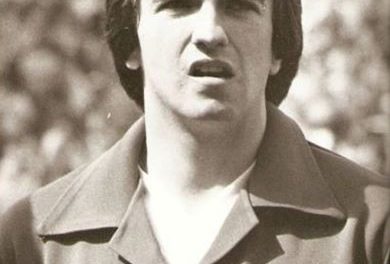In business, when severe challenges come along you have basically 3 options;
- Run around panicking like extras in a bad disaster movie
- Sit in the corner like Corporal Fraser stating “we’re doomed”
- Or provide a temporary solution and see if you need a long-term strategy change.
Failed businesses have done one of the first two options (or usually the first then the second). The latter is not always possible but is the solution for those who manage to come out of the other side. Which leads us onto Scottish football and the death of Rangers.
The death of Rangers was a time to take stock. Apply some emergency sticking plasters whilst re-assessing and then adopt a new long-term plan. In 1974 the Scottish game adopted the crazy economic strategy that 4 games each against Celtic and Rangers will keep our elite clubs viable and every other plan since then has involved milking that particular cash cow further. The end of Rangers was an opportunity to reset the economics and try something different – 18 team top flights, regional lower leagues, summer football etc etc. Maybe others, maybe some, maybe none of these were the answer, but apply the short-term fix, get a blank piece of paper, review the options, press reset and go. Instead our game did options 1 & 2.
The Armageddon complex perfectly encapsulated 1&2 above in one word. Leaders lead. Regan and Doncaster didn’t. After twenty years of a bust game living a ludicrous speculate to accumulate culture and kept afloat by unsustainable bank debt and tax scams the death of the country’s second biggest club was an ideal chance to press reset. Granted the game would have needed a sticking plaster fix, after all one cash cow had been milked to death, but to proper leaders this would have provided an excellent opportunity. The Scottish game (and despite my comments about Regan and Doncaster above) is the 42 clubs and unfortunately we appear to have few if any leaders because what happened was abysmal and that was never more evident than with our TV coverage.
The death of Rangers triggered a break clause. TV contracts were null and void and the clubs were desperate. The problem of negotiating from a weak and desperate position is that the other side gets everything they want. By publicly stating the Armageddon position, the leaders of our game told Sky & BT Sport that they were enacting policies 1 & 2 above without taking breath to have any consideration for point 3. They went into negotiations with their pants down and were right royally shafted. To mix metaphors they opened the door and asked the thieves to take whatever they wanted as long as their lives were spared. No consideration appears to have been given to the true cost to our game. No pause for consideration of the opportunity cost.
Opportunity cost is what you forego on an alternative in order to follow a particular course. For example, say a farmer has part of his land in vegetable crops and part of it contains cows for milk. Tesco come along and say they could take twice as much milk and will give the farmer a 5-year contract for double milk output. The farmer therefore needs to asses, is the additional guaranteed income sufficient to do away with the income he looses from growing carrots, potatoes etc? It seems as obvious as the nose on the end of your face to make that assessment…not for Scottish football.
When Rangers died, the TV deal was on the brink of collapse, the game needed the money and signaled to Sky that they were desperate. The clubs told Doncaster that a deal had to be done. At any cost we had to retain TV money. Celtic were the only sellable product and therefore Doncaster brought Lawwell to the negotiations. The TV companies made a take it or leave it deal and under the instruction of the majority of his 42 bosses Doncaster took it…without anyone having regard to the opportunity costs.
You may ask what these opportunity costs are. We take TV money and it supplements the gate receipts, but that is the issue. With poorly marketed games and no consistency to, and late notice of change of kick off times, attendances and corporate revenue are affected.
3pm kick off for a “big team” coming and a lesser club does well with local business people buying the complete corporate package with noon lunch and after game drinks. Move that at 2 weeks notice to 12:15pm and suddenly a 10:30am start for roll and sausage isn’t quite so big time Charlie for the local businessman and not so sellable for the club. It’s even worse for the BBC Alba 5:30pm Saturday Falkirk v Dumbarton. What sort of clients do you ask to that 3pm to 8pm Saturday “event”?
The consequence is that we have a TV contract in Scotland that actually costs clubs money. TV coverage is essential to enhance all sorts of marketing contracts and to promote the game however I know of clubs in Scotland where the loss from expected revenue has not been compensated by the income paid by TV. TV no longer pays clubs on a per game basis, the revenue is pooled into the league payments. For example I know of two Championship clubs where late kick off changes resulted in cancelled corporate spend and where the revenue drop for live games was not compensated by the league payments – the tv contracts have cost them money.
I’m not one for knocking back TV and returning every game to 3pm Saturday. That defies the logic of the digital age where everything is available for viewing. As can be seen from across Europe, working in partnership with TV to market and enhance the game actually increases match-day attendance providing a win win …but not in Scotland.
We have TV coverage that is poor in production quality and poor in marketing. Fans are mucked about with irregular kick off times without sufficient recompense to the clubs when that disregard for the paying customer results in a drop of income. A TV deal was accepted without anyone assessing the opportunity cost. The death of Rangers obviously presented multiple problems, but it also provided opportunities, unfortunately with regards our TV deal that was an opportunity lost.




